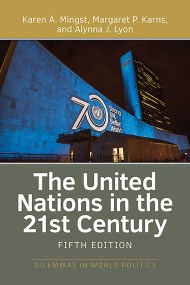Shopping Cart
Humanitarian Challenges And Intervention
Second Edition
Description
There are two distinct contemporary challenges to the relief of war-induced human suffering–one within the institutions that make up the international humanitarian system, the other on the ground in war zones. Varied interests, resources, and organizational structures within institutions hamper the effectiveness of efforts on behalf of war victims. And at the same time, on the ground, there are ethical, legal, and operational challenges and dilemmas that require actors continually to choose a course of action with associated necessary evils.Humanitarian challenges and intervention concerns within the international humanitarian system–combined with the domestic context of armed conflicts–often yield policies that do not serve the immediate requirements of victims for relief, protection of rights, stabilization, and reconstruction. Based on compelling, up-to-date case studies of the post-Cold War experience in Central America, northern Iraq, Somalia, the former Yugoslavia, and the African Great Lakes, the authors Thomas G. Weiss and Cindy Collins make recommendations for a more effective international humanitarian system.
Newsletter Signup
By clicking ‘Sign Up,’ I acknowledge that I have read and agree to Hachette Book Group’s Privacy Policy and Terms of Use













